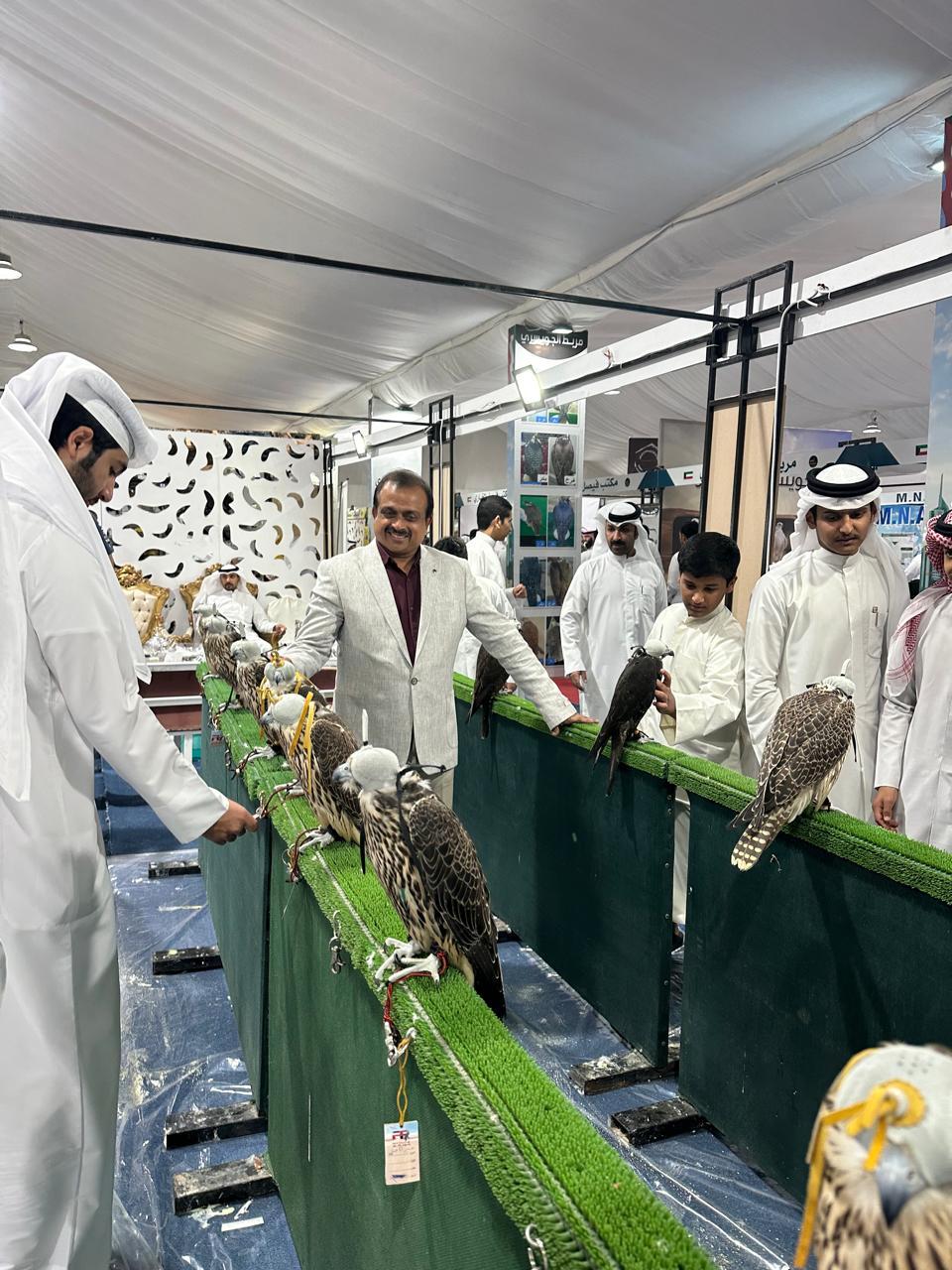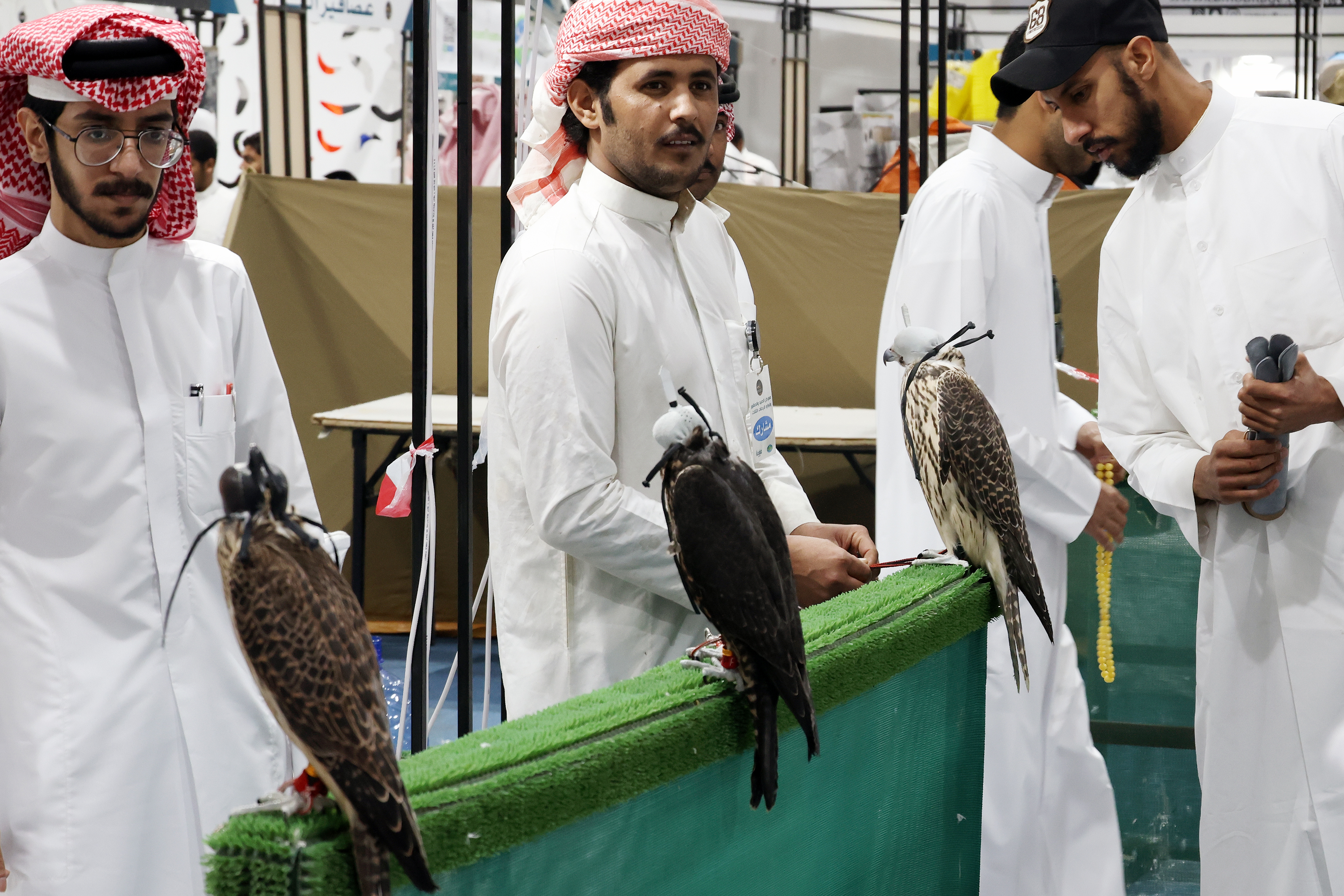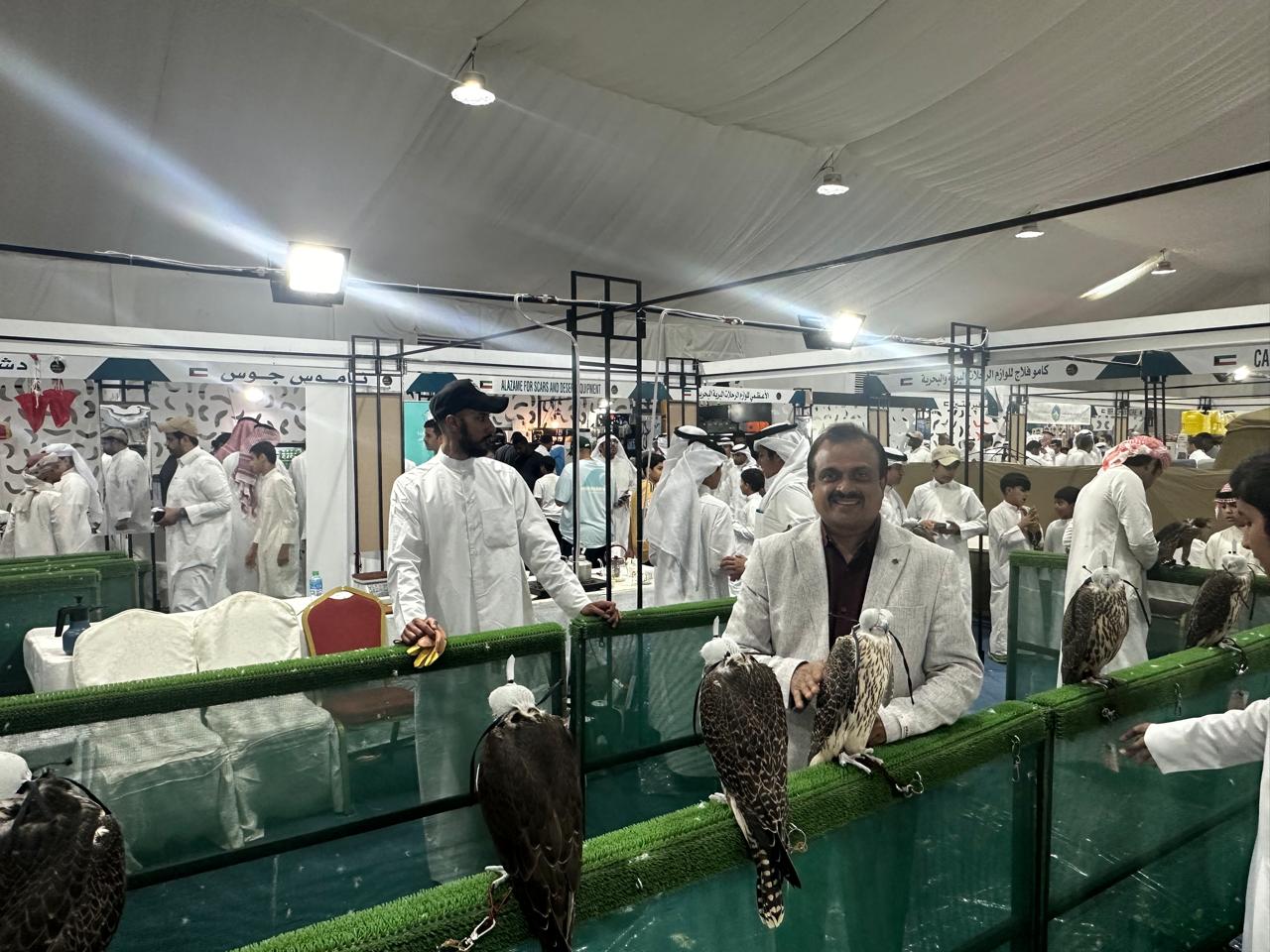title
By Sajeev K Peter
KUWAIT: Scores of falconers and bird lovers flocked to the five-day falcon exhibition at Sabhan as the 8th edition of the Kuwait International Falcon event came to a close on Saturday. Billed as a successful event, this year’s falcon exhibition attracted more than 21 countries including first-timers such as Poland, Austria, Portugal and Russia. The exhibition has been an important annual event for both enthusiasts and people interested in hunting and falconry equipment in Kuwait.
“The falcons, which are of great importance to Arab tradition and culture should be given extra care as they are under serious threat of extinction”, said Dr Zubair Medammal, a scholar who has studied falcons extensively and doing research on falcons and attended the exhibition as a key speaker. The love of Kuwaitis for falcons is well-known as they passionately keep the tradition alive by raising the falcons and using them for hunting.
Speaking to Kuwait Times, Dr Zubair said the falcon is the national bird of Kuwait and the country spends millions of dollars every year to purchase falcons from different parts of the World. Katara organizes International Hunting and Falcons Exhibition (S’hail) every year based on its continuous desire to preserve falconry and this year’s exhibition ran from Sept 24-28 at the Hunting Exhibition Center in Sabhan, Kuwait.
Arabs constitute one-third of the world’s falconers. It is believed that Arabs have hunted with falcons for the past 2,000 years. “Being the national bird, falcons are revered in Kuwait as symbols of strength, grace, and nobility. Historically, falcons were used for hunting, contributing to the sustenance of the Kuwaiti people and fostering a sense of camaraderie between human and bird,” he added.
However, Dr Zubair cautioned that extra care should be taken while feeding falcons as many birds have died as a result of feeding on pesticides affected food and preying on infected birds. “It is the only bird which requires a passport to cross the border of a country,” Zubair said, referring to the measures taken by some Gulf countries. Kuwait has implemented passport system for falcons by CITES in 2021.
“The falcon has always been regarded as a very uncommon and shy bird and it is very rarely observed by amateur birdwatchers. To observe the falcons, one has to travel in an airplane,” he said claiming he has flown nearly hundred times around the world for the same purpose. For falcon research, Dr Zubair visited the US, Europe, Australia, Germany, Thailand, Singapore, China, Kuwait, the UAE, Saudi Arabia, Qatar, Bahrain, Oman, Morocco, Pakistan Iran, Oman, Malaysia, Egypt, Sri Lanka, Palestine, Jordan, Kazakhstan, Bangladesh etc. He received special training in artificial falcon-breeding from Stuttgart. Dr Zubair is the first and only Indian to get a doctorate in the study of falcons. He is also the only one who has recorded and made sonogram of 15 different vocalizations of various species of falcons.
















